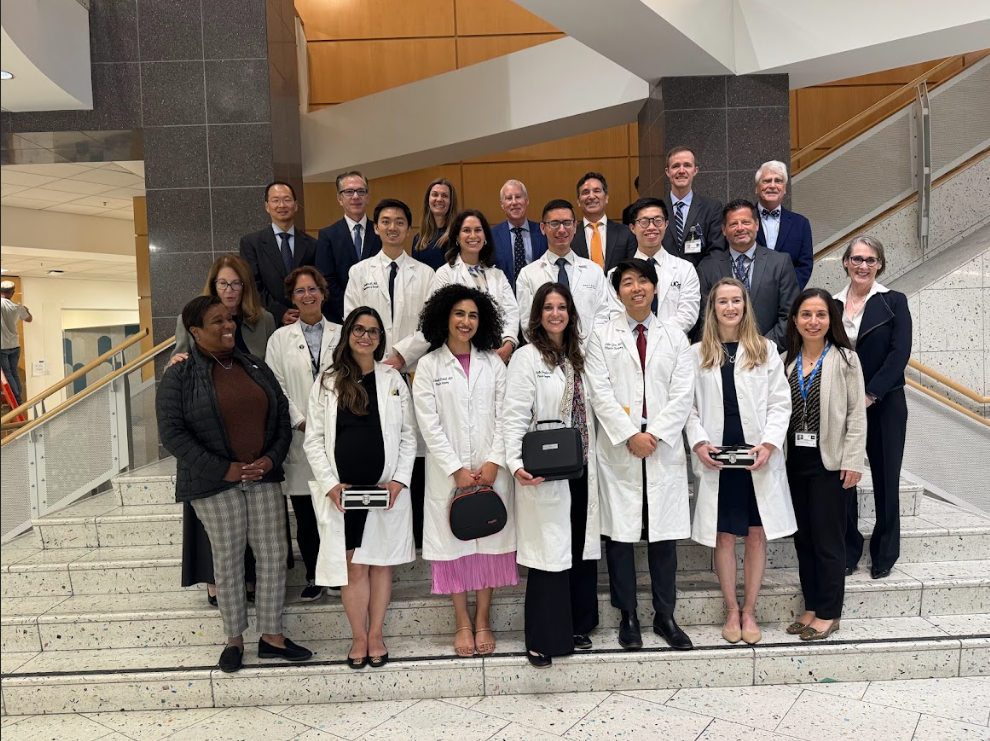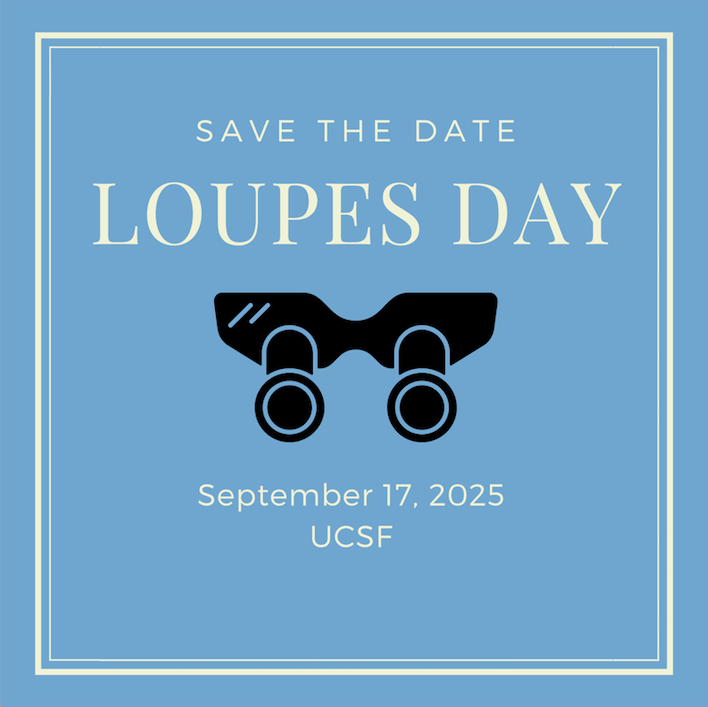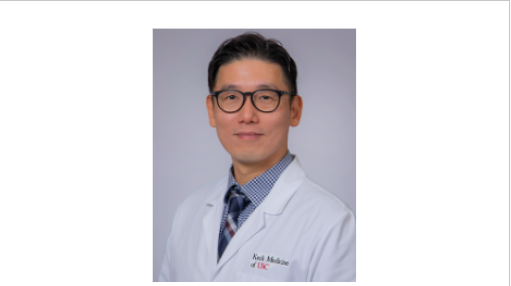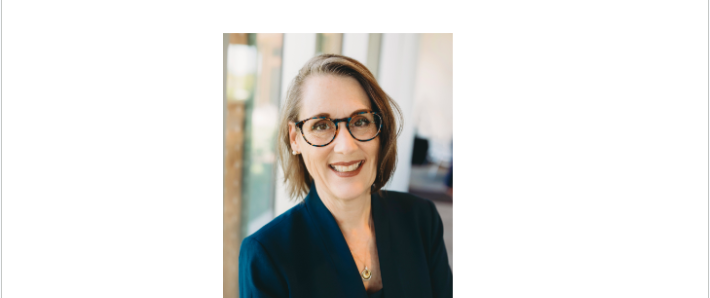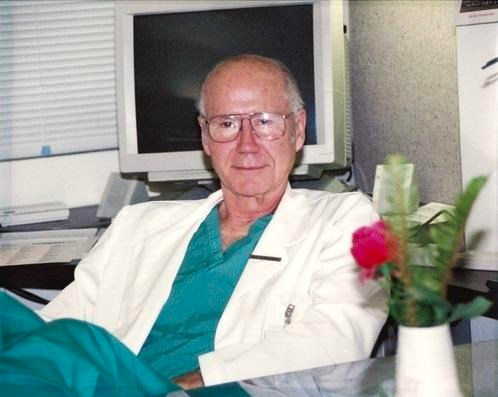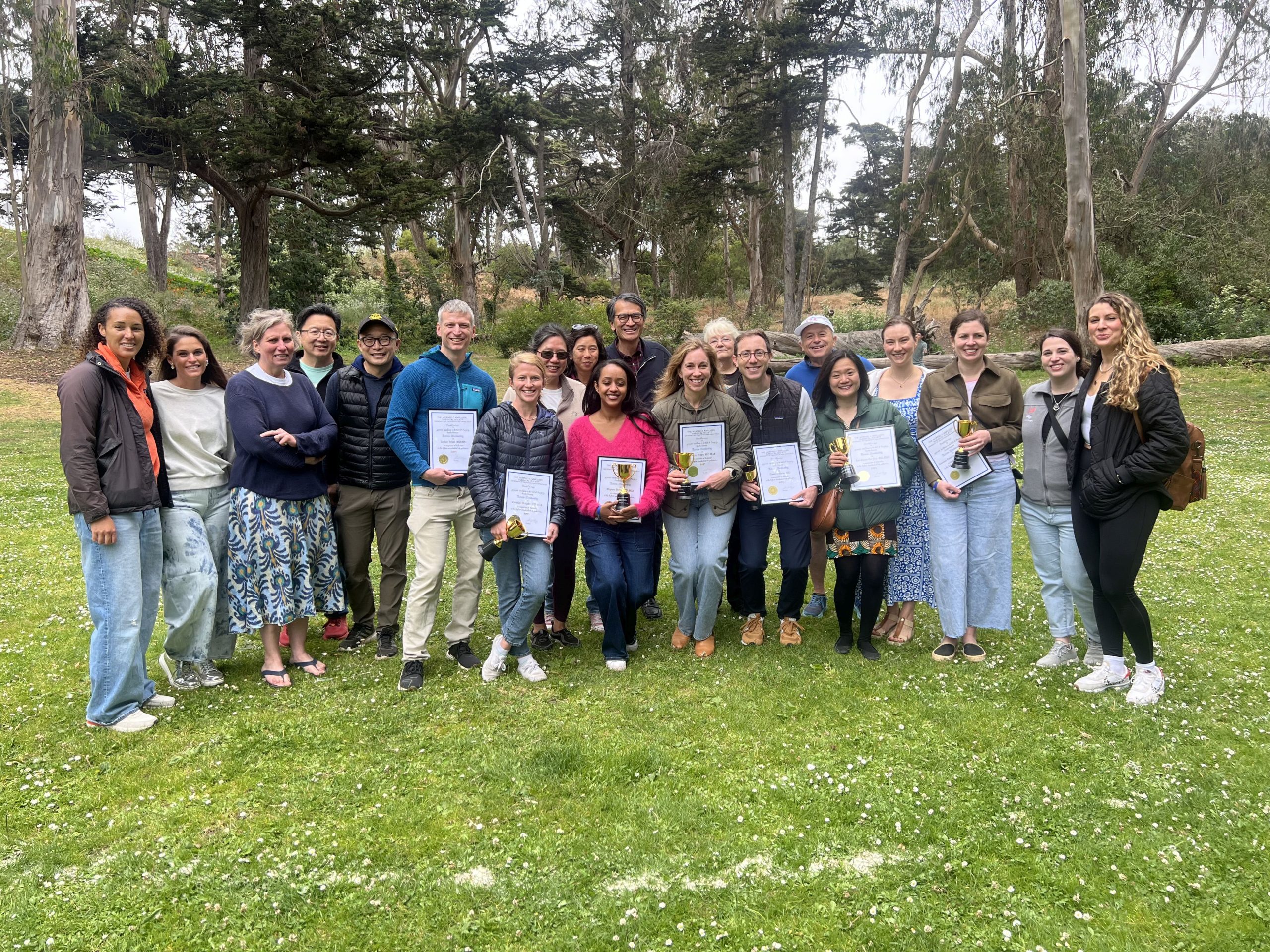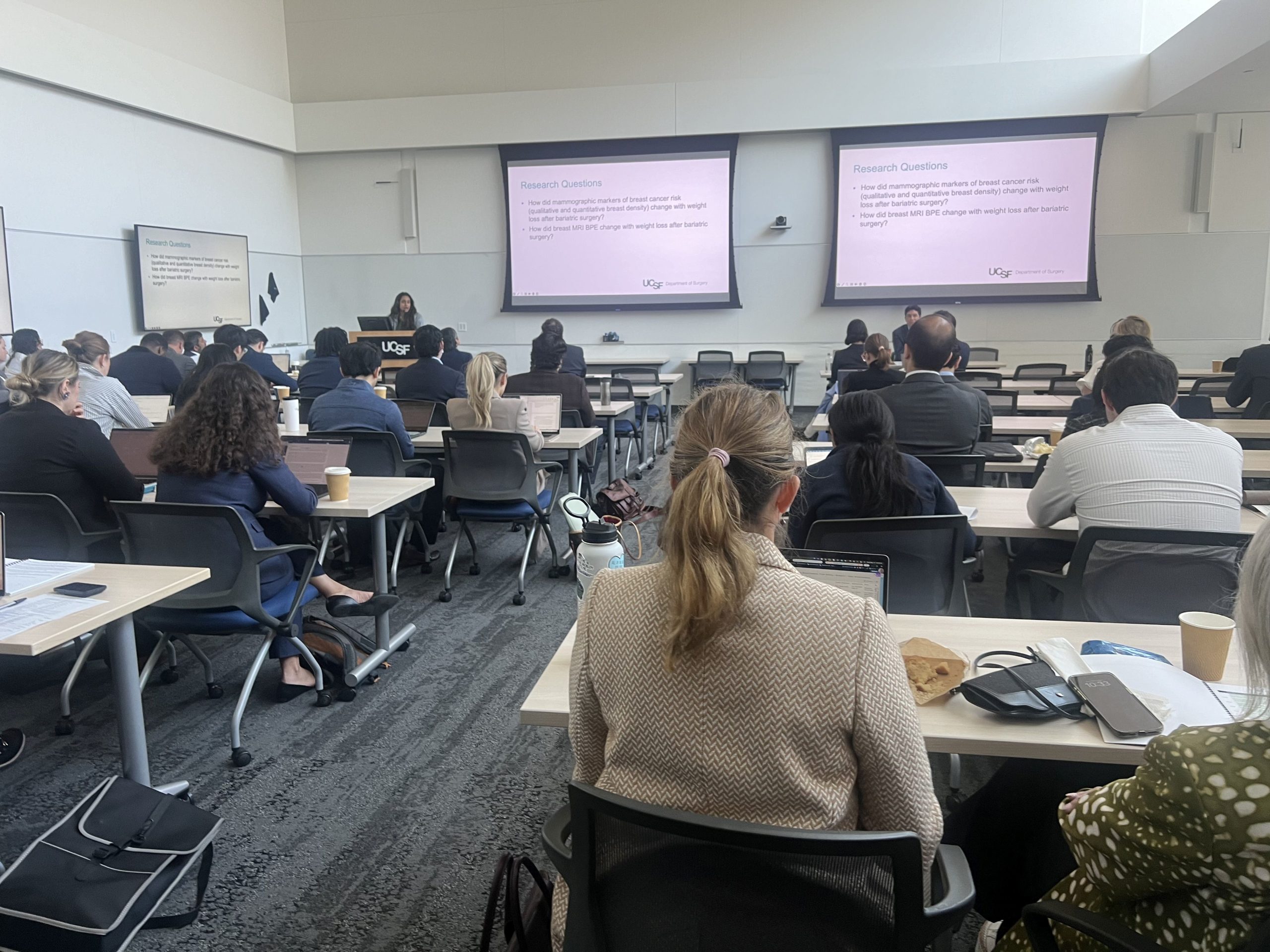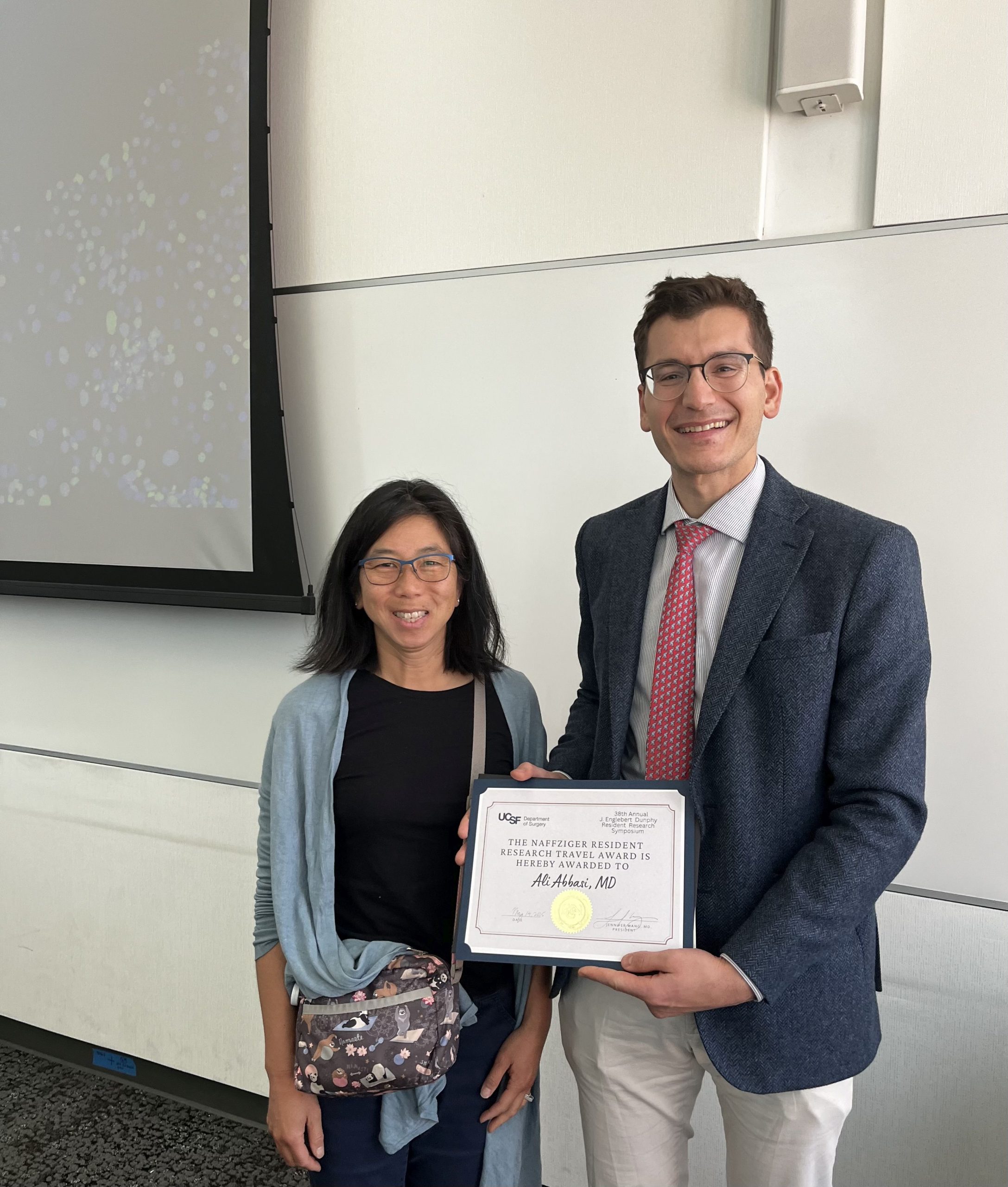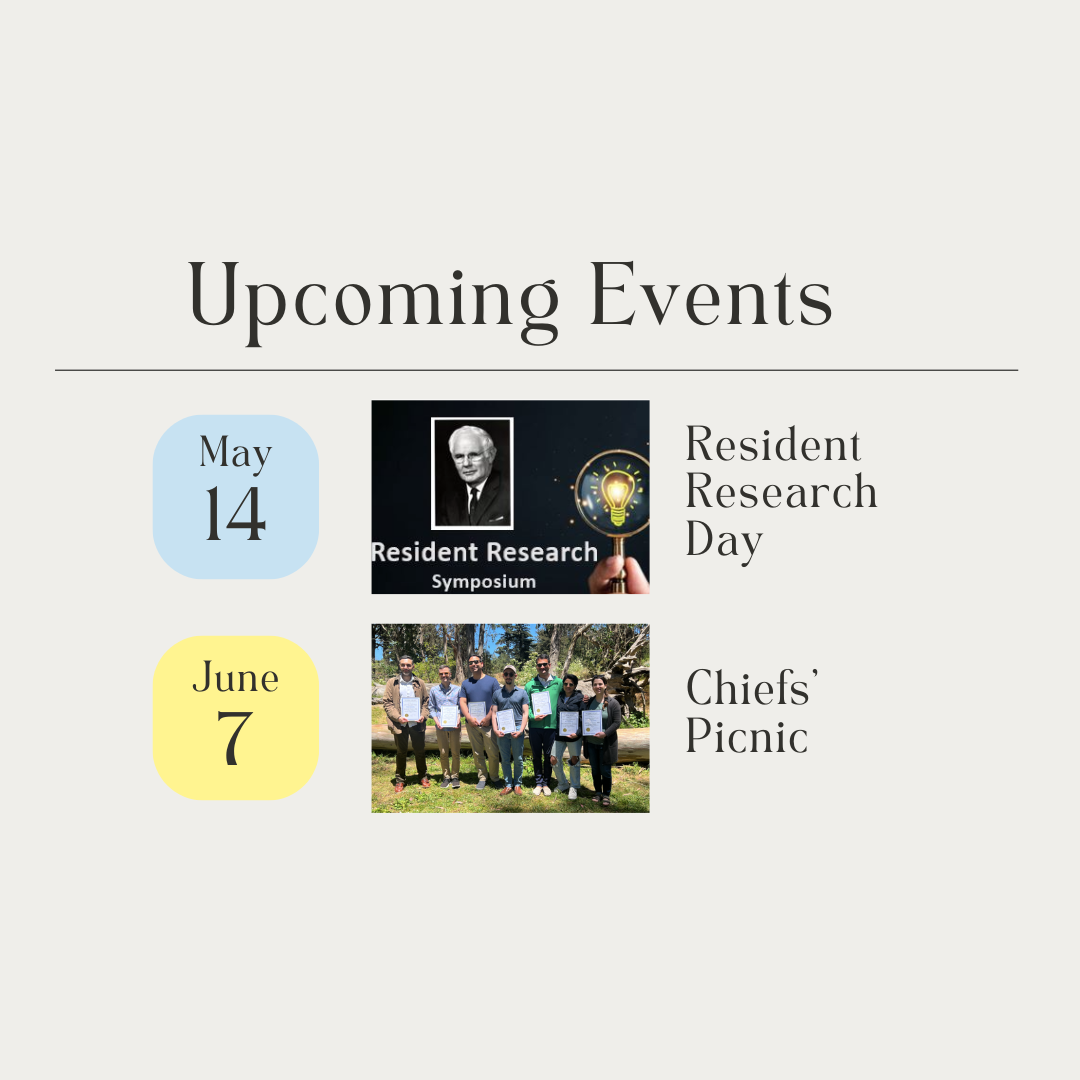Join us at 6pm on Friday February 6, 2026 at The Laughing Monk 1785 Fulton Street, San Francisco.
News
Loupes Day 2025
Thank you for joining us last month for the 2025 Naffziger Loupes Day ceremony. It was a joy to come together as a community to honor some of our remarkable alumni & R2s! We are very grateful to everyone who participated. Your connection to this community is what makes it so special.
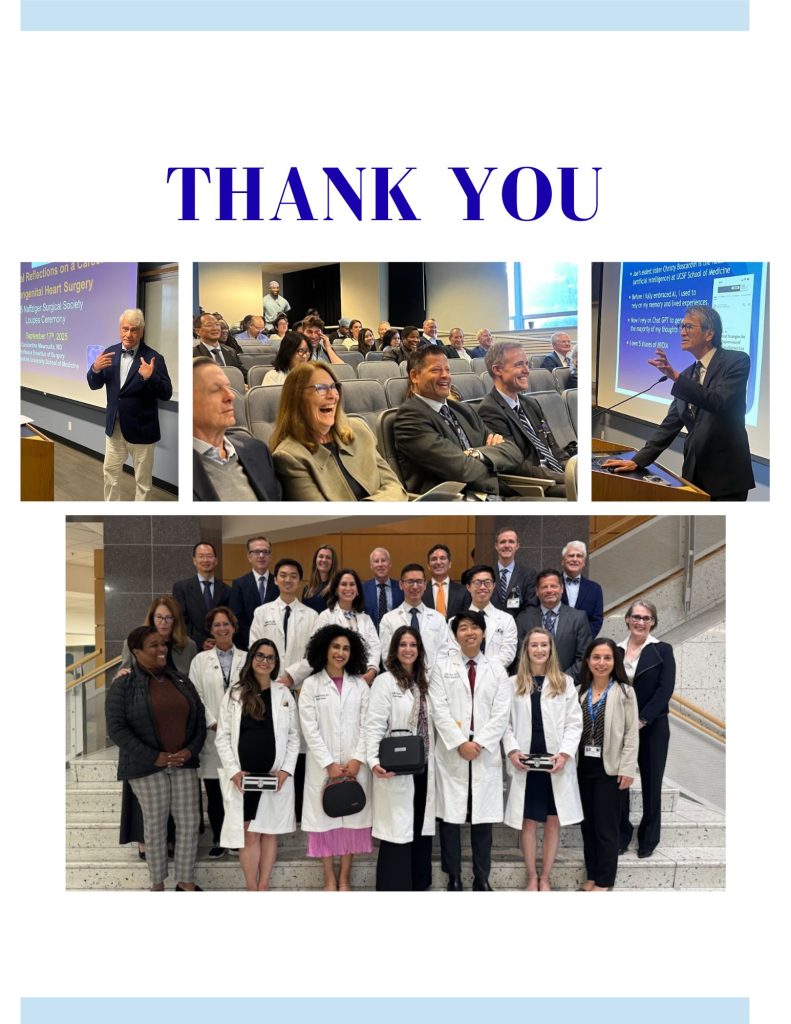
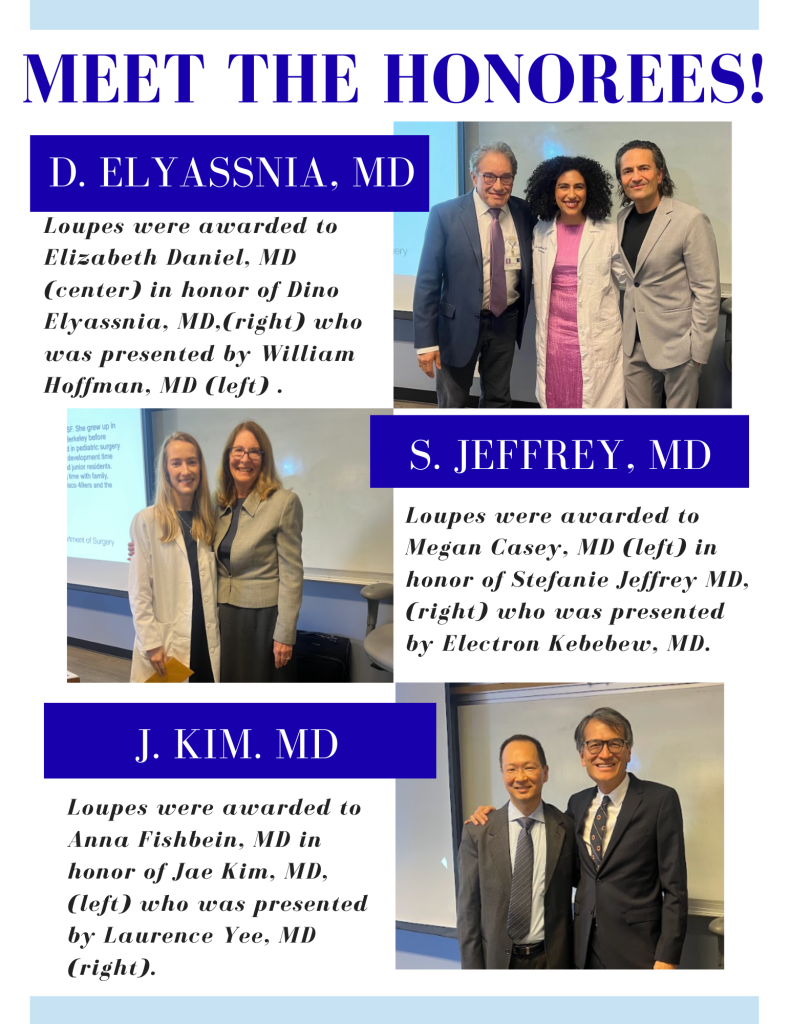
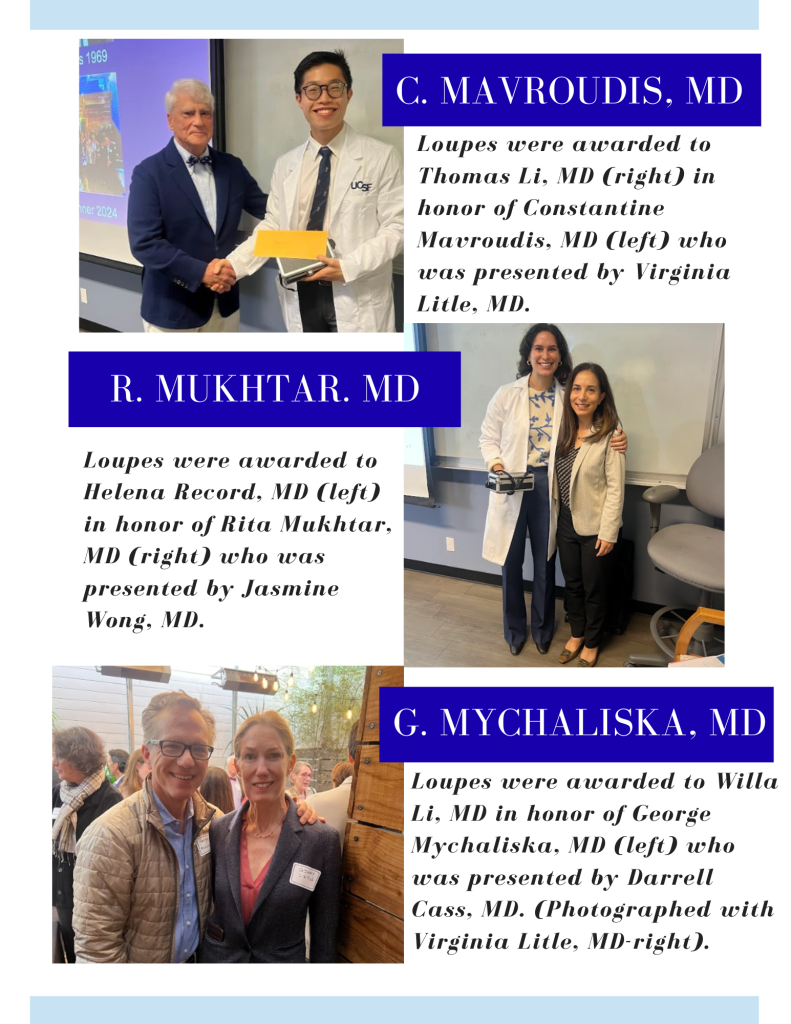
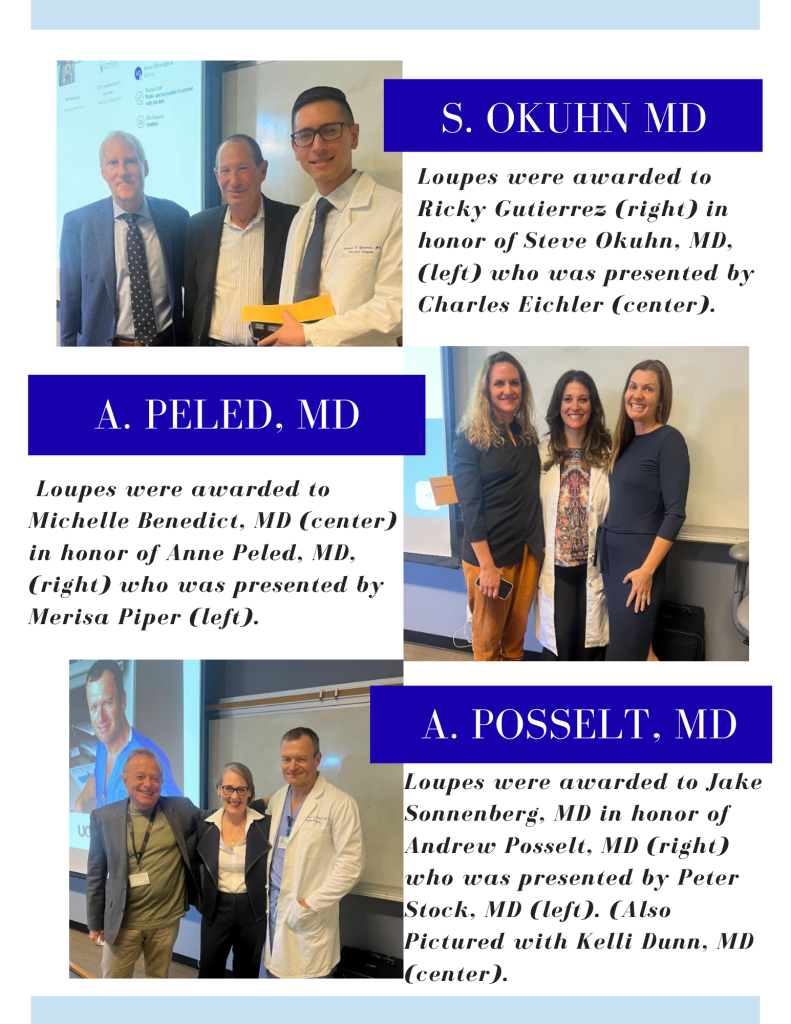
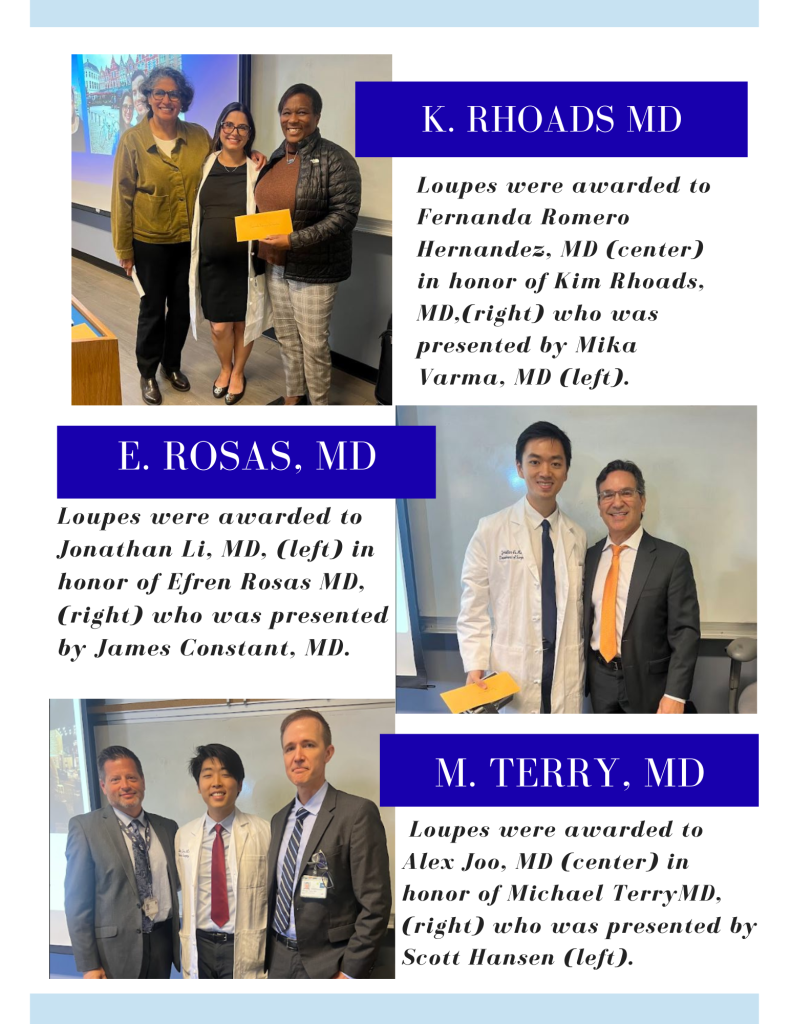
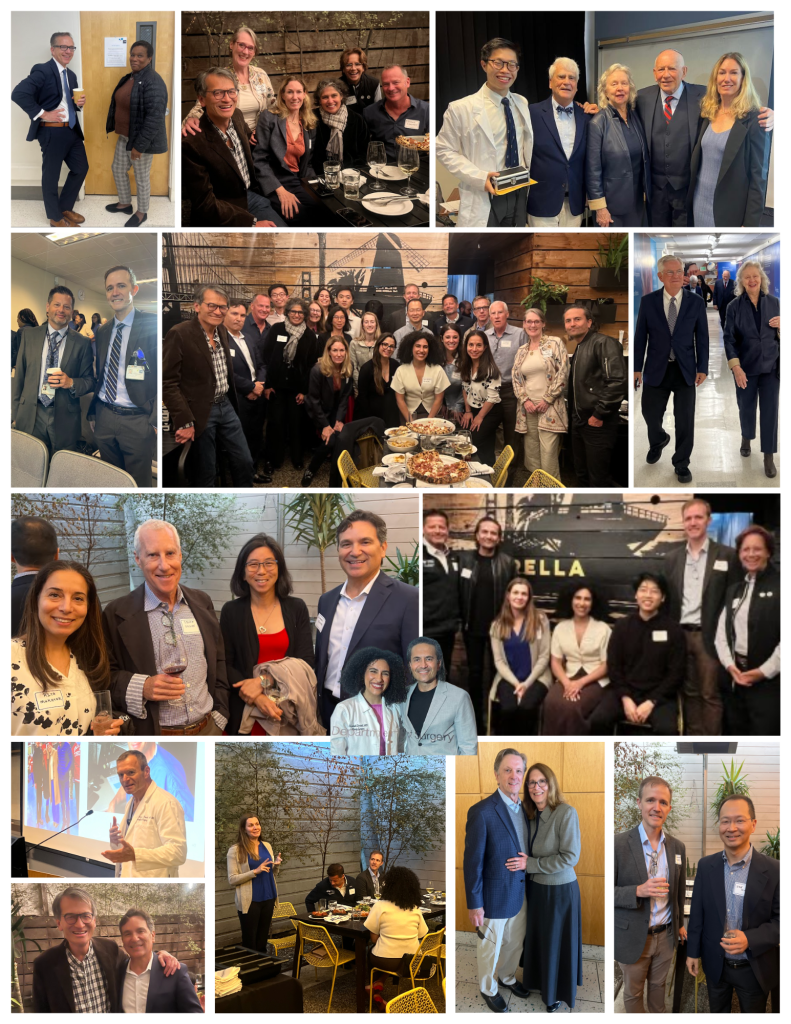
UPCOMING: LOUPES DAY 09/17/2025
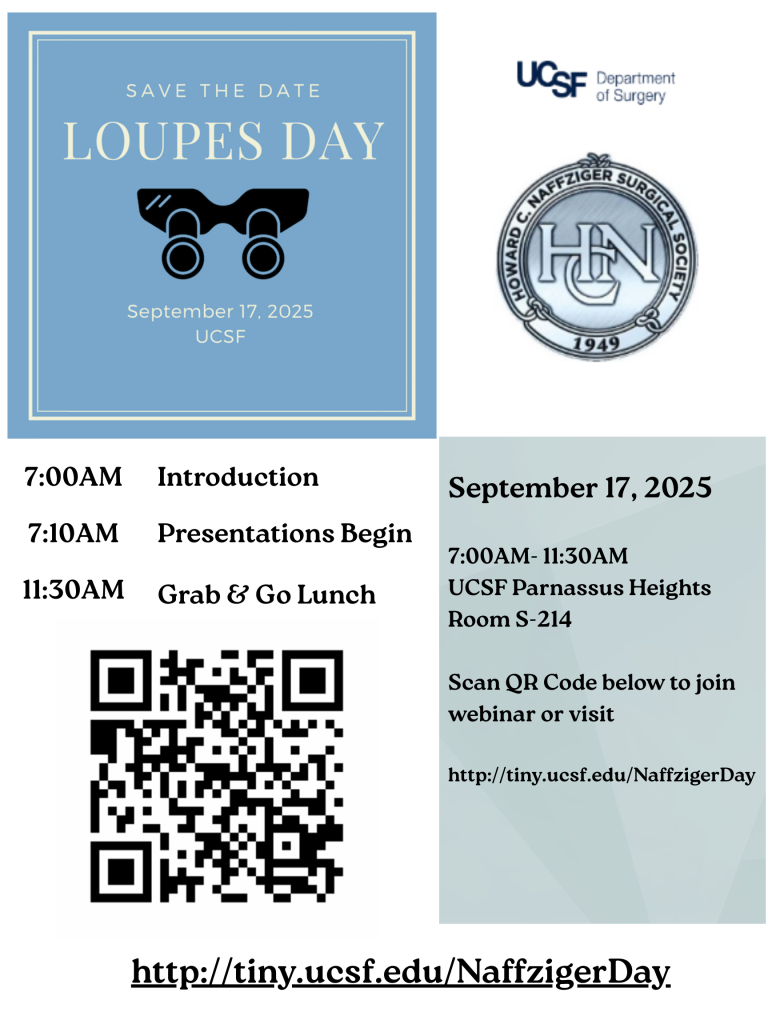
Featured Alumni: Sukgu M. Han, MD, MS, DFSVS
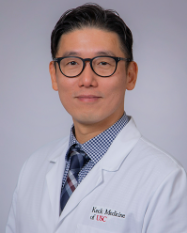
Dr. Sukgu Han is a Professor of Surgery and Neurological Surgery and the Chief of the Division of Vascular Surgery and Endovascular Therapy at the University of Southern California. He earned his M.D. from the University of California, Irvine School of Medicine, graduating with Alpha Omega Alpha honors distinction. He then completed general surgery training at USC in 2012, during which time he obtained a master’s degree in biomedical engineering from USC’s Viterbi School of Engineering, where he focused on developing a radiation-free, ultrasound-mediated 3D endovascular GPS system.
He was an independent clinical fellow in the Division of Vascular and Endovascular Surgery at UCSF from 2012 to 2014, during which time he developed a passion for complex aortic surgery. After completing his fellowship, he joined the Division of Vascular Surgery at USC as an Assistant Professor of Surgery. In his early years, he dedicated himself to building clinical expertise in complex endovascular aortic repairs, focusing on technical efficiency and building a multidisciplinary aortic team. He was appointed co-director of the Aortic Center in 2017 and has been instrumental in leading USC’s evolution into one of the most robust aortic centers in the country.
While maintaining a busy clinical practice, Dr. Han conducts clinical and translational research in aortic surgery, describing new techniques to improve complex endovascular procedures and creating novel device concepts through patents. He is a leading enroller and principal investigator in several major endoaortic device trials. He is also a national principal investigator for a next-generation EVAR device and a post-market registry for current-generation EVAR devices. He currently leads multidisciplinary efforts on critical issues in vascular surgery, including spinal cord ischemia, aortic arch repairs, and improving postoperative surveillance.
1. What first drew you to vascular surgery, and how did your time at UCSF shape your passion for complex aortic procedures?
I was first introduced to vascular surgery as a third-year medical student at UCI by Dr. Roy Fujitani. His dedication to his patients—many of whom faced chronic, life-threatening conditions—and the long-term relationships he maintained with them left a deep impression on me. His example sparked my interest, and I found myself reading more about vascular surgery than anything else that year. That interest led me to apply for a sub-internship on the UCSF vascular surgery service during my fourth year.
That one month at UCSF had a lasting impact. Drs. Linda Reilly, Jade Hiramoto, and Tim Chuter were pivotal in shaping my decision to pursue vascular surgery. Dr. Reilly’s thoughtful clinical reasoning, Dr. Hiramoto’s precision and tireless work ethic, and Dr. Chuter’s visionary approach to aortic surgery set a standard I aspired to follow.
When the time came to apply for fellowship after completing general surgery at USC, UCSF was my top choice without hesitation. Matching there remains one of the most memorable moments in my training. The fellowship experience shaped me tremendously—Dr. Eichler taught me how to operate with efficiency and focus, and Dr. Conte has remained a model of leadership and academic integrity. Ironically, complex aortic repair wasn’t initially my strength during fellowship, but the exposure I received at UCSF far exceeded what was typical at the time, and that foundation prepared me to pursue this path after returning to USC.
2. You’re involved in several major endoaortic device trials—what excites you most about the future of endovascular technology?
My perspective is still fairly narrow, focused mostly on aortic disease. But it’s been remarkable to see how ideas that pioneers like Dr. Chuter introduced decades ago are now becoming viable treatment options. What excites me most is the potential for truly minimally invasive solutions for even the most complex aortic pathologies.
In the coming decade, I think we’ll see wider adoption of dedicated devices for total percutaneous arch repair—moving from feasibility to pivotal trials, and eventually becoming available at more centers, just as thoracoabdominal technologies have over the past ten years. We’re also starting to see intersections between structural heart interventions and complex aortic repair, such as the evolution of the Endo-Bentall procedure. It’s a very exciting time to be part of the field.
3. What advice would you give to young surgeons interested in combining clinical work with innovation or research?
I still have a lot to learn myself, but if I’ve had any progress in innovation or research, it’s been through clinical necessity. I wouldn’t describe myself as particularly inventive—many of the ideas or techniques came out of a need to find a solution when no good options existed.
Focusing on real, unmet clinical needs has a way of forcing creativity. The technology you wish existed for your patients becomes the seed for innovation. For me, building a solid clinical foundation was essential before I could meaningfully contribute to new ideas or devices.
4. Outside of surgery and research, what do you enjoy doing to recharge and stay balanced?
Nothing especially unique. I used to enjoy sports like basketball, tennis, and running, but these days most of my free time is spent with my wife supporting our pre-teen daughters and their club sports activities.
One hobby I’ve managed to keep is drawing. I’ve always loved sketching, and I still enjoy doing caricatures or portraits—especially of colleagues and mentors. It’s a relaxing way to stay creative outside of the OR.
Bonus Question: How did moving to the USA during high school shape your perspective and your path to becoming a surgeon?
Moving to the U.S. in high school was a big adjustment, but I was fortunate to have supportive friends during that time. Adapting quickly to a new culture and environment taught me the value of persistence and flexibility—skills that served me well during surgical training. Looking back, those early challenges helped shape a mindset that continues to guide me through the ups and downs of a surgical career.
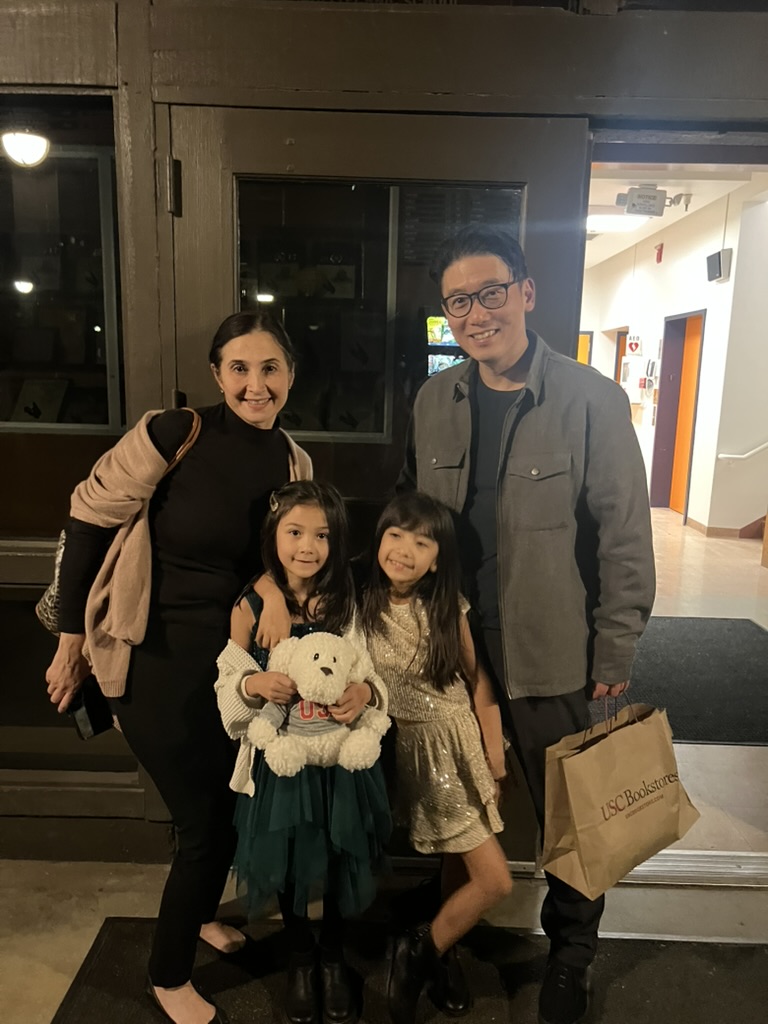
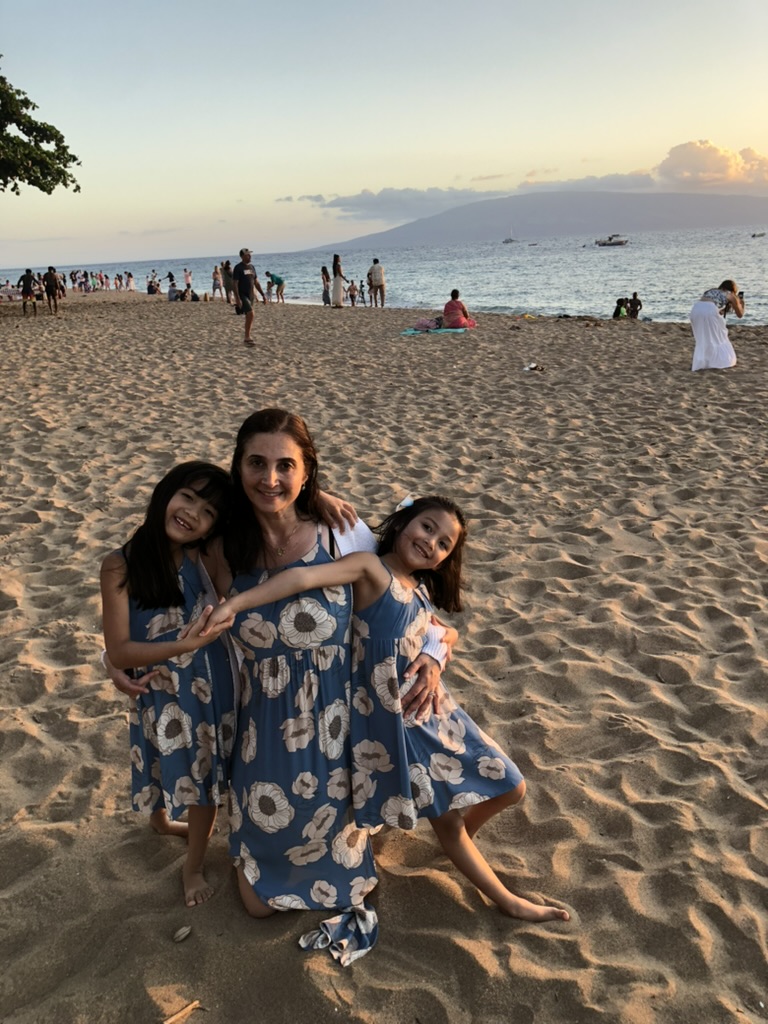
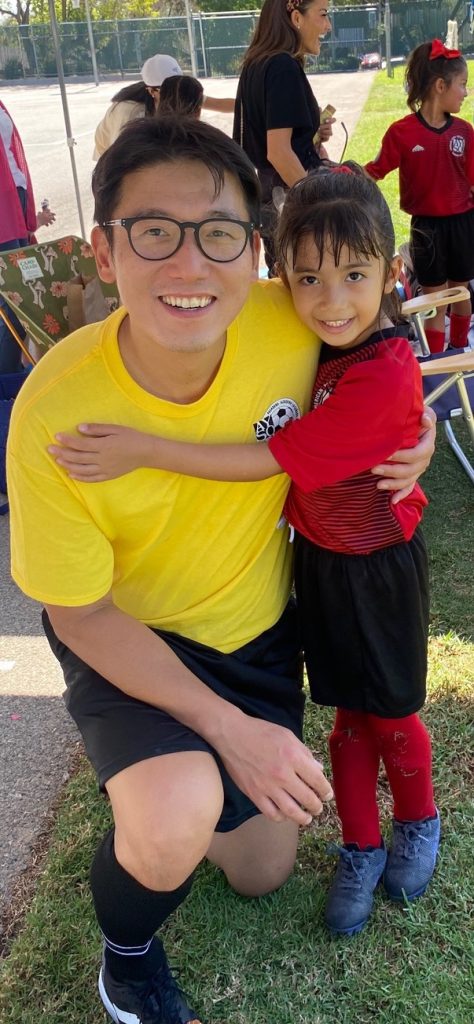
Welcome Dr. Kelli Bullard Dunn as new NSS President!
The Naffziger Surgical Society is delighted to announce Dr. Kelli Bullard Dunn as our new President. Kelli served as Vice President last year under President Jenn Wang, and we are excited to see her leadership continue to strengthen our community.
In Memory of Arthur Norman Thomas M.D. 1931 – 2025
Arthur Norman Thomas, MD
01/27/1931 – 06/29/2025
“Dr. Arthur N. Thomas died at home on Sunday, June 29, at the age of 94. He is survived by his beloved wife of nearly 75 years, Adeline, their five children, seven grandchildren, and three great-grandchildren.
Dr. Thomas chose to become a surgeon at age 13, a decision that shaped a distinguished career spanning six decades. He published more than 125 scientific articles, contributed to several medical textbooks, and was a frequent presenter at surgical conferences.
A pioneer in hyperbaric medicine, Dr. Thomas led early research into the use of hyperbaric environments to enable surgeries requiring extended periods with poor circulation. Soon after, he was awarded a prestigious three-year grant from the National Institute of Health to explore the use of membranous oxygenators for prolonged heart-lung bypass.
Dr. Thomas served as Chief of Thoracic Surgery at San Francisco General Hospital, where he became a member of the first trauma team ever assembled. He spent the rest of his career as Professor of Surgery at the University of California, San Francisco, one of the country’s finest surgical training programs.
His innovative approach to surgery laid the groundwork for today’s surgical procedures for cardiac rhythm disorders and esophageal disorders and injuries. Some 15.8 million Americans each year are affected by these conditions. He co-founded the Samson Thoracic Surgical Society in 1974, later known as the Western Thoracic Surgical Association (WTSA). This professional organization today is a robust institution
with hundreds of members.
Dr. Thomas’s legacy endures in the lives he touched, the students he mentored, and the many contributions he made to the advancement of medicine. A private memorial service will be held by the family.”
Published by San Francisco Chronicle on Jul. 13, 2025.
2025 Chiefs’ Welcome Picnic
The Naffziger Society held its annual Chiefs’ Welcome Picnic on Saturday, June 7th, at the Elk Glen Picnic Area in Golden Gate Park. Thank you to Dr. Sosa, our esteemed faculty, and all society members who joined us to celebrate and warmly welcome our newest alumni into the community.
Spearheaded by President Jen Wang, the rising chiefs added a fun and personal touch to the event by creating lighthearted awards for this year’s chiefs. Special thanks to Tom Sorrentino and Basil Karam for putting together an outstanding presentation that brought laughter, reflection, and camaraderie to the celebration.
This tradition offers a meaningful opportunity to connect, reflect, and share insights as the chiefs begin the next chapter of their careers. As Dr. Kenzo Hirose aptly put it, it’s “like the brunch following a wedding”—a time to celebrate, reminisce, and look ahead together. We’re truly grateful to everyone who helped make this event a success.
38th Annual Research Symposium
The Department of Surgery Annual Research Symposium was held on May 14, 2025.
You may view the recording here: https://ucsf.app.box.com/s/bfvgfw1o99ebqiq2wt2sbpkx6jj8iwjc
For Dr. Jayaraman’s Keynote and awards announcements view here: https://ucsf.box.com/s/gqs8irzb04ahznqr499mpx2euz8j7xkr
Congratulations to all the awardees listed below, selected by a panel of judges, who are members of the Department of Surgery Research Committee.
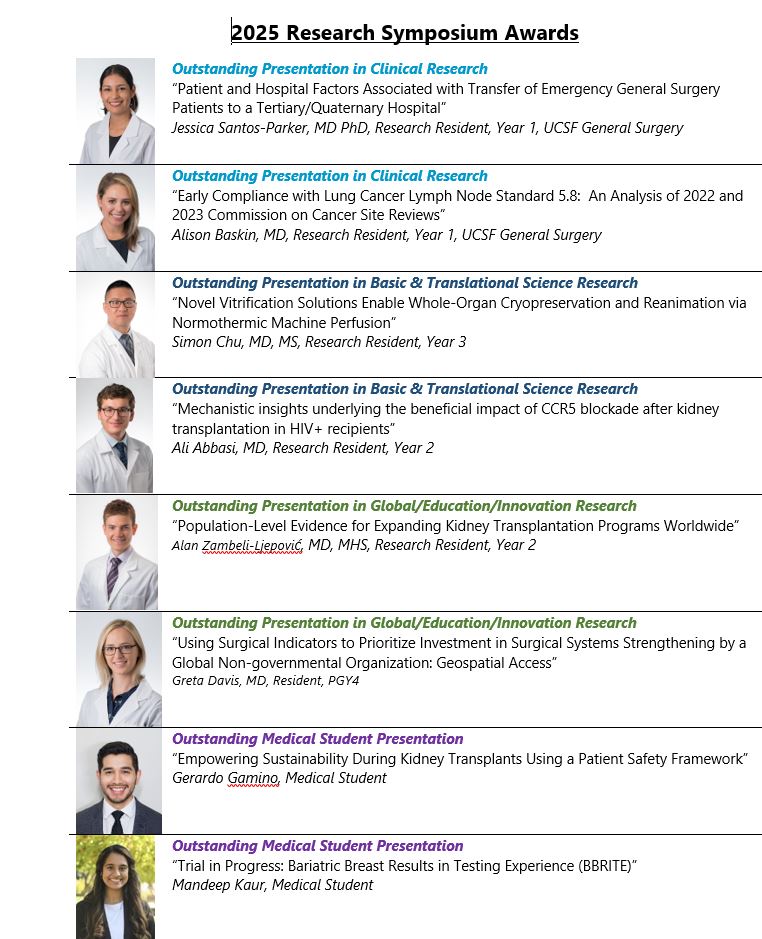
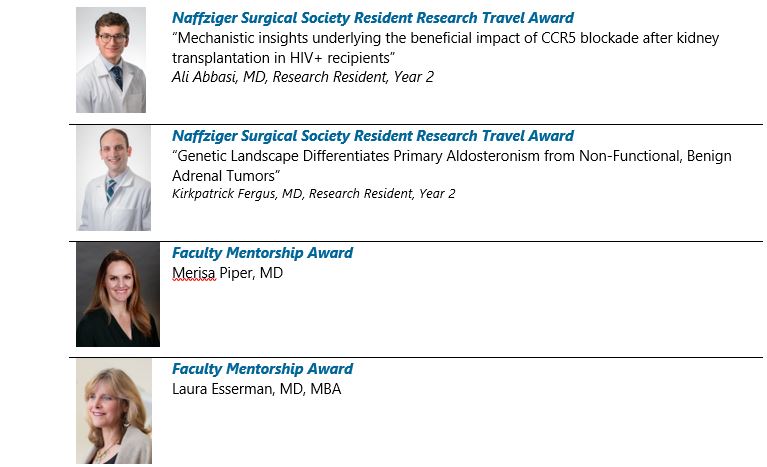
Ali Abbasi, MD Naffziger 2025 Resident Research Award Winner
Ali Abbasi, MD, Research Resident Year 2
“Mechanistic insights underlying the beneficial impact of CCR5 blockade after kidney transplantation in HIV + recipients”
Upcoming Events!
Resident Research Day May 14, 2025 & Chiefs’ Picnic June 7 2025!

